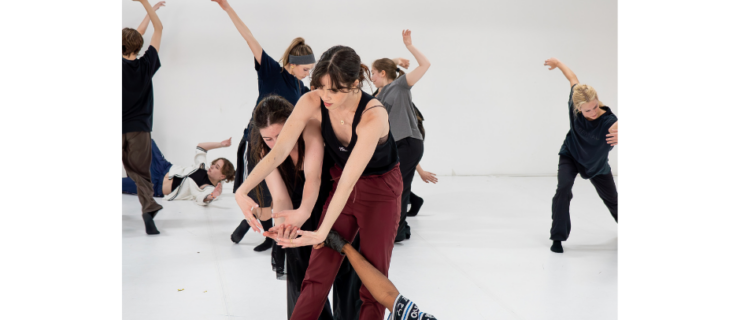advice for dancers
Why do I keep getting stress reactions in my foot? This is the third one in the last few years and I’m afraid it’s going to get worse once I start performing. My doctor told me to stop jumping for a few weeks and do floor barre to stay in shape. It’s the future that scares me. Am I doing something wrong?
Injury-Prone Dancer
Interlochen, MI
First, let’s look at the bright side. You don’t have a stress fracture with an actual break in the bone—that can take six weeks or longer to heal. Unlike a fracture where the pain is sudden and intense, the discomfort from a stress reaction builds up gradually. Both occur from repetitive impact (like jumping) that overloads certain areas of the foot. What makes you especially vulnerable? There could be many reasons. Delayed menarche (age 16 or older) from dieting creates weaker bones. You can
correct this hormonal problem with better nutrition (including calcium and vitamin D supplements) and, in some cases, weight gain. A Grecian foot with a long second metatarsal and toe also increases the stress on impact and during relevés. If this is the case, an orthotic in your street shoes can relieve the pressure. Environmental factors, such as a hard floor, are more difficult to control, other than lowering the height of your jumps or switching studios. Be aware that the healing period is roughly equal to the amount of time you danced in pain. Reduce impact activities (including relevés) if you begin to feel a sore spot on the top of your foot. Still, don’t be discouraged: I’m told that young people with multiple stress reactions tend to outgrow these injuries as their bones gain their full strength.
I’ve always felt an inner drive to express myself through singing and creative movement. I did well in choreography and voice during college but am now filled with insecurities about my limitations. I believe in my talent but don’t have a perfect body or technique. Am I deluding myself about having a career in the arts?
Isabelle
Brooklyn, NY
It’s always a bit unnerving to leave the reassuring structure of school and step out on your own. A supportive network of teachers, friends, and family can help you find your bearings. You also need time as you adjust to your new life. In terms of limitations, some of the most creative artists have turned their liabilities into assets. Bob Fosse used his physical idiosyncracies to develop his own unique movement style, and covered his balding head with his signature hat. Luigi developed his jazz vocabulary after recovering from a car crash. And then there’s Meredith Monk, the MacArthur “Genius” award winner who used her physical challenges to forge an original way of moving that extended into a virtuosic kinetic vocal style. To use another example, one of Balanchine’s greatest ballets, Serenade, took shape because each day a different number of dancers showed up for rehearsals. He worked with what he had. So should you. To find out how other performing artists have overcome handicaps, check out April’s Question of the Month in my discussion forum “Linda Hamilton, Live!” on my website www.wellness4performers.com. While the creative process isn’t always smooth, it often arises while finding original solutions to an obstacle.
I’ve been bored in dance class for several months. I know it isn’t burnout because I’m not overworked and I get at least nine hours of sleep a night. But I have other interests I want to explore. My mother thinks I’m just going through a phase. Do you agree? I’m about to be 16.
Bored Dancer
Cleveland, OH
It’s hard to tell. Certainly, teenagers go through phases, especially since adolescence is a time when it’s normal to experiment with different activities and identities. Many teens drop out of intense training when socializing becomes a higher priority than a career. As you know, dancers need to be single-minded about their work. Although this doesn’t preclude having a life with friends and hobbies, boredom may be a sign of emotional stress. It might help to switch dance teachers and see if this inspires you. If not, then you can always back off, take an occasional class, or watch a performance for fun.




